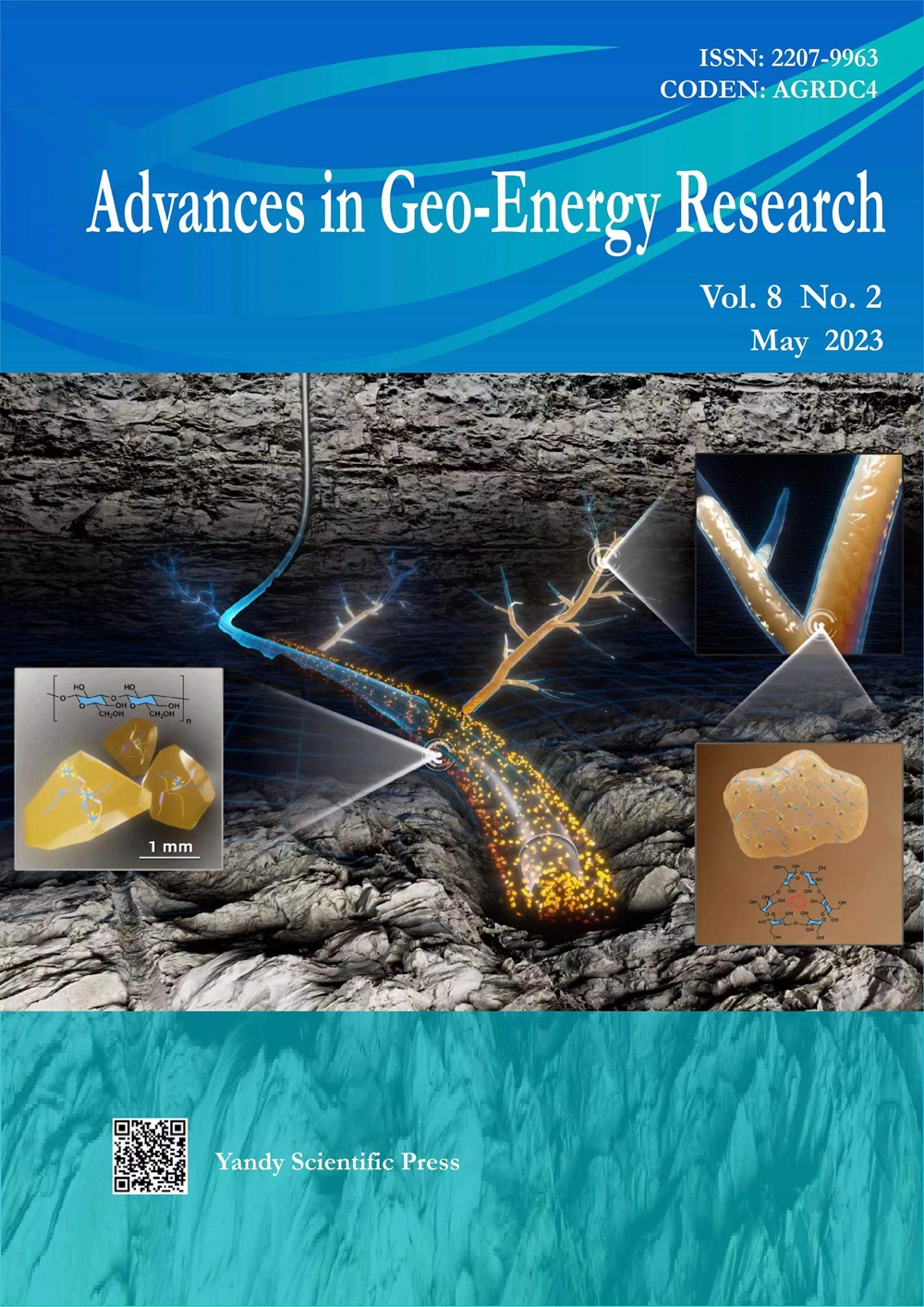Theoretical assessment of CO2 injection into low-temperature water zones for non-leaking storage in hydrate form
IF 10
1区 地球科学
Q1 ENERGY & FUELS
引用次数: 0
Abstract
Concerns exist about CO2 leaks from conventional supercritical CO2 storage reservoirs. This study investigates injecting CO2 into low-temperature offshore reservoirs to lock it in a solid state, thus preventing potential leaks. An analytical model was developed to predict CO2 injectivity into frac-packed injection wells in these low-temperature reservoirs. While the initial transient flow model was complex with Bessel functions and exponential integral, it was further simplified for practical field application. Sensitivity analysis of the model reveals that injectivity is less sensitive to reservoir permeability but more sensitive to fracture conductivity. The analytical model suggests injectivity is directly proportional to fracture width and fracture permeability. The case study utilizing field data from the South China Sea indicates feasible injection rates ranging from 6 to 17 tons/day depending on fracture conductivity. This work provides an analytical tool to predict injectivity for CO2 storage in frac-packed low-temperature offshore reservoirs, contributing to carbon reduction and neutralization goals. Document Type: Short communication Cited as: Guo, B., Zhang, P. Theoretical assessment of CO2 injection into low-temperature water zones for non-leaking storage in hydrate form. Advances in Geo-Energy Research, 2023, 10(1): 1-6. https://doi.org/10.46690/ager.2023.10.01以水合物形式注入低温水区无泄漏封存CO2的理论评价
人们对传统超临界二氧化碳储存库的二氧化碳泄漏存在担忧。本研究探讨了向海上低温储层注入二氧化碳,将其锁定在固体状态,从而防止潜在的泄漏。建立了一个分析模型来预测这些低温储层中压裂充填注水井的二氧化碳注入能力。由于初始瞬态流动模型具有贝塞尔函数和指数积分的复杂性,因此在实际应用中对其进行了进一步简化。模型的敏感性分析表明,注入能力对储层渗透率的敏感性较低,而对裂缝导流能力的敏感性较高。分析模型表明,注入能力与裂缝宽度和裂缝渗透率成正比。利用南海的现场数据进行的案例研究表明,根据裂缝的导流能力,可行的注入量范围为6 ~ 17吨/天。这项工作提供了一种分析工具,用于预测压裂充填的海上低温储层的二氧化碳储层注入能力,有助于实现碳减排和中和目标。引用人为:郭,B.,张,P.。低温水区注入二氧化碳水合物无泄漏储存的理论评价。地球能源研究进展,2023,10(1):1-6。https://doi.org/10.46690/ager.2023.10.01
本文章由计算机程序翻译,如有差异,请以英文原文为准。
求助全文
约1分钟内获得全文
求助全文
来源期刊

Advances in Geo-Energy Research
natural geo-energy (oil, gas, coal geothermal, and gas hydrate)-Geotechnical Engineering and Engineering Geology
CiteScore
12.30
自引率
8.50%
发文量
63
审稿时长
2~3 weeks
期刊介绍:
Advances in Geo-Energy Research is an interdisciplinary and international periodical committed to fostering interaction and multidisciplinary collaboration among scientific communities worldwide, spanning both industry and academia. Our journal serves as a platform for researchers actively engaged in the diverse fields of geo-energy systems, providing an academic medium for the exchange of knowledge and ideas. Join us in advancing the frontiers of geo-energy research through collaboration and shared expertise.
 求助内容:
求助内容: 应助结果提醒方式:
应助结果提醒方式:


